The Science & Technology of Feedback
Feedback is one of the most fundamental elements of human communication. When and how feedback is given influences its results. From interpersonal interactions to human-machine feedback systems, our communication with each other and with technology is changing. Increasingly, our devices are taking on social roles.
Our format for the conference will be short brain snack presentations. You’ll hear from Stanford Thought Leaders, students and the mediaX Community. With a broad range of topics we’re seeking to create a sense of the horizon questions – creating a big picture of emerging innovations in which the whole is greater than the sum of its parts, and giving participants an opportunity to talk with each other about our latest questions, insights, amazements.
Never Miss An Event; Join Our Email Community
Presenters

James Landay, Balancing Design and Technology in Feedback for Change. James Landay is a Professor of Computer Science at Stanford University, specializing in human-computer interaction (HCI). Previously, Dr. Landay was a Professor of Information Science at Cornell Tech in New York City and prior to that a Professor of Computer Science & Engineering at the University of Washington. His current research interests include Technology to Support Behavior Change, Demonstrational Interfaces, Mobile & Ubiquitous Computing, and User Interface Design Tools. He is the founder and co-director of the World Lab, a joint research and educational effort with Tsinghua University in Beijing.
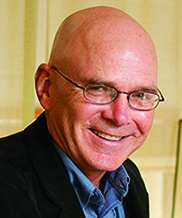
Byron Reeves, Feedback (quick and lots of it) and the End of Theory? Byron Reeves is the Paul C. Edwards Professor of Communication at Stanford University. He teaches courses in mass communication theory and research, with particular emphasis on psychological processing of interactive media. His research has been the basis for a number of new media products for companies such as Microsoft, IBM, and Hewlett-Packard, in the areas of voice interfaces, automated dialogue systems and conversational agents. He is currently working on the applications of multi-player game technology to learning and the conduct of serious work.
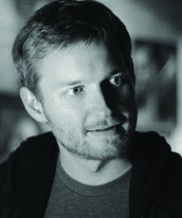
Dean Eckles, Peer Effects and Feedback in Online Communication. Dean Eckles is a social scientist, statistician, and member of the Data Science team at Facebook. He studies how interactive technologies affect human behavior by mediating, amplifying, and directing social influence — and the statistical methods to study these processes. The design of new interactions, interventions, and methods is sometimes both a means and an end. In particular, he has studied how interactive technologies can be designed to change people’s attitudes and behaviors — whether by transforming and influencing their communications with others or by cuing them to treat systems and services as if they were human.
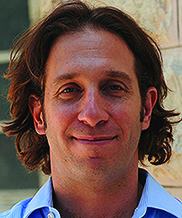
Jeremy Bailenson, Social Feedback in Virtual Reality. Jeremy Bailenson is founding director of Stanford University’s Virtual Human Interaction Lab, an associate professor in the Department of Communication at Stanford, and a Senior Fellow at the Woods Institute for the Environment. He designs and studies virtual reality systems that allow physically remote individuals to meet in virtual space, and explores the manner in which these systems change the nature of verbal and nonverbal interaction. In particular, he explores how virtual reality can change the way people think about education, environmental behavior, and health.
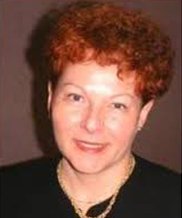
Renate Fruchter, TeamNudge. Renate Fruchter is the founding director of the PBL Lab, lecturer in the Department of Civil & Environmental Engineering, and Senior Research Engineer thrust leader of “Collaboration Technologies” at the Center for Integrated Facilities Engineering (CIFE), at Stanford. She leads a research effort to develop collaboration technologies for multidisciplinary, geographically distributed teamwork, and e-Learning. Her interests focus on R&D and larger scale deployment of collaboration technologies that include Web-based team building, synchronous and asynchronous knowledge capture, sharing and re-use, project memory, corporate memory, and mobile solutions for global teamwork and e-Learning.

Maurits Kaptein, Personalization of Continuous Feedback. Maurits Kaptein explores the size and stability of heterogeneity in people’s responses to influence strategies and possible applications of such heterogeneity. Maurits is also a Co-founder and the Chief Scientist of PersuasionAPI. He received his MS in Economic Psychology from the University of Tilburg and completed the post-master User System Interaction program at the Technical University of Eindhoven.
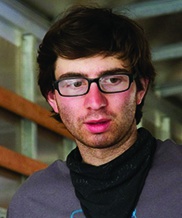
Nik Martelaro, Feedback from Social Agents. Nik Martelaro is a PhD student at the Center for Design Research exploring prototyping and human robot interaction. He is interested in the design of future tools of creation and how we can use computation and “smart” products to enhance our design abilities.
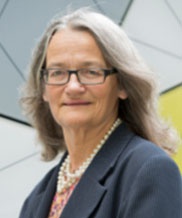
Ursula Martin, Crowdsourcing a Mathematical Proof: Requesting and Accepting Feedback. Ursula Martin joined the University of Oxford as Professor of Computer Science in 2014. She holds an EPSRC Established Career Fellowship. Prior to this she held a chair of Computer Science in the School of Electronic Engineering and Computer Science at Queen Mary University of London. She holds an MA in Mathematics from Cambridge and a PhD in Mathematics from Warwick. She was appointed a Commander of the Order of the British Empire in January 2012.
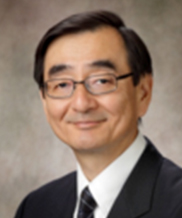
Hiroshi Tomita, Enhancing Productivity Through Feedback from Stanford. Hiroshi Tomita has over 20-years of experience with Konica Minolta in software development for office automation, and the development of image processing technology for color and B&W Multi-Function Products. Mr. Tomita has been responsible for all Konica Minolta R&D activities in the US, overseeing core technology development and research collaborations with US companies, universities, and research institutes in the areas of IT, environmental energy, and healthcare. Mr. Tomita is the second-time President and current Executive Advisor to the Japanese Chamber of Commerce of Northern California (JCCNC).